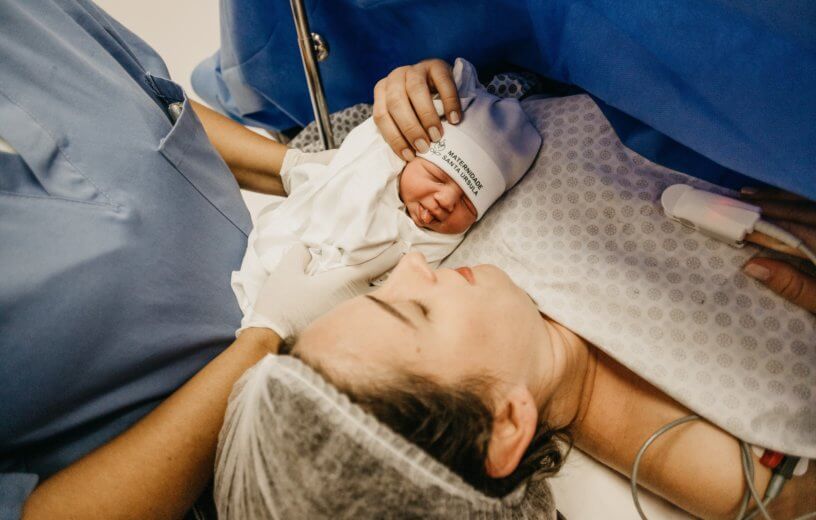SOLNA, Sweden — There are a number of contributing factors that may lead to someone developing a weight problem, but according to a new study, whether or not they were born via a C-section is not one of them.
A number of previous studies had found a connection between C-section deliveries and subsequent obesity in the birthed children, but a more comprehensive study is challenging this theory. Researchers from the Karolinska Institute in Sweden incorporated various maternal and prenatal factors that had been unaccounted for by past research, and concluded that children born via C-sections are no more likely than any other child to develop obesity.
A C-section, short for Cesarean section, is a surgical birth procedure in which the baby is delivered through the mother’s abdomen. These procedures are usually performed when a vaginal delivery may endanger either the mother or child, and are becoming more and more common as time goes on. For example, in 1990, C-sections only accounted for 6.7% of worldwide births, but by 2014 that statistic increased to 19.1%.
As C-sections continually become more popular, researchers have also started to focus more on their possible long-term effects on birthed offspring. Besides the research already performed regarding obesity, other studies have found a connection between C-sections and increased risk of asthma or other allergies.
Furthermore, this study’s authors were also curious if they could find a link between the recent uptick in obesity problems over the past few decades and the rise in C-section popularity within the same time period. To accomplish this, the BMIs of almost 1,000 18-year-old men were compared and separated into three birth categories: Those born vaginally, those born via an elective C-section, and those born via non-elective C-section.
Now, going strictly off of the data, 5.5% of men born via elective C-section and 5.6% born via non-selective C-section were obese in comparison to just 4.9% of men delivered vaginally. While that would suggest, at first, that C-sections do indeed increase one’s risk of weight gain, after the research team accounted for other factors known to influence offspring weight, such as pre-pregnancy BMI, maternal age, diabetes, smoking habits, etc., they concluded that C-sections do not play a significant role in offspring obesity risk.
“We found no evidence to support a link between C-sections and the development of obesity,” says Daniel Berglind, researcher at the Department of Global Public Health at Karolinska Institute in a release. “This tells us that how women give birth may not be an important factor in the origins of the global obesity epidemic.”
Further validating their findings, researchers also identified and analyzed almost 10,000 pairings of brothers, but even then, differences in birth delivery methods between siblings were not found to hold any significant influence over weight outcomes later in life.
“Most of the association between C-section and obesity could be explained by maternal pre-pregnancy BMI,” explains Viktor H. Ahlqvist, researcher at the Department of Global Public Health. “This suggests that heritability and fetal exposure to obese-causing factors in the womb are more important when assessing the risk of obesity in the offspring than the mode of delivery.”
The study is published in the scientific journal PLOS Medicine.
